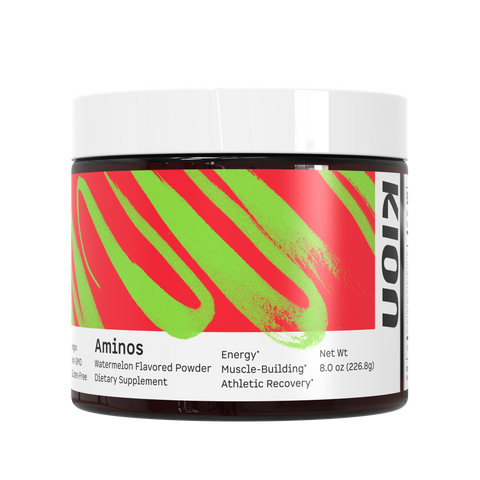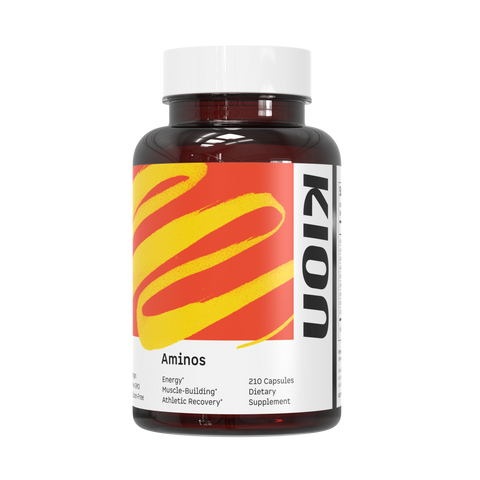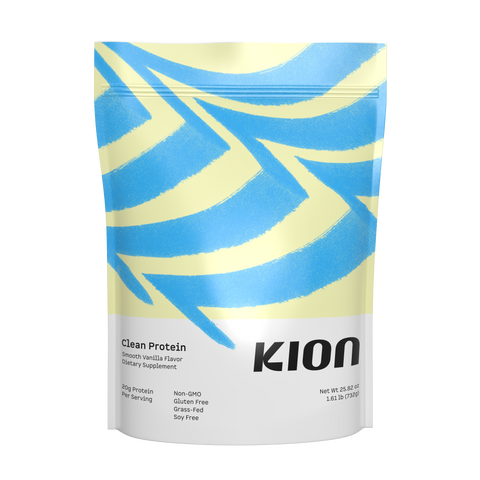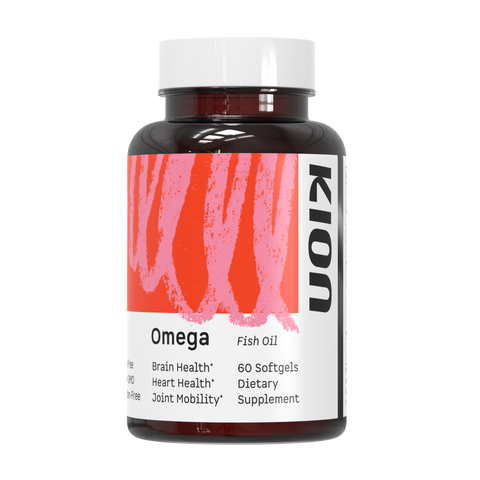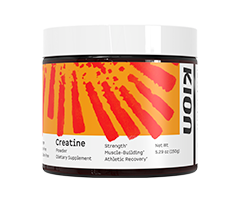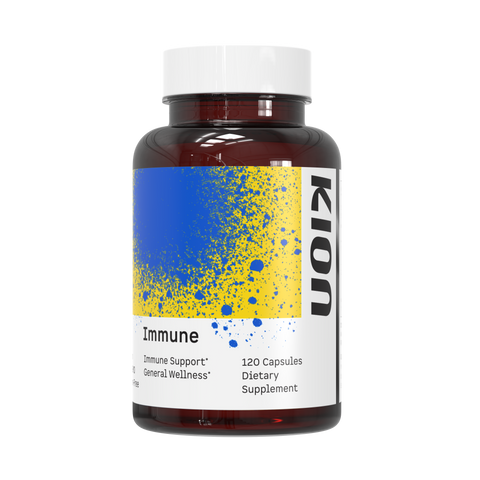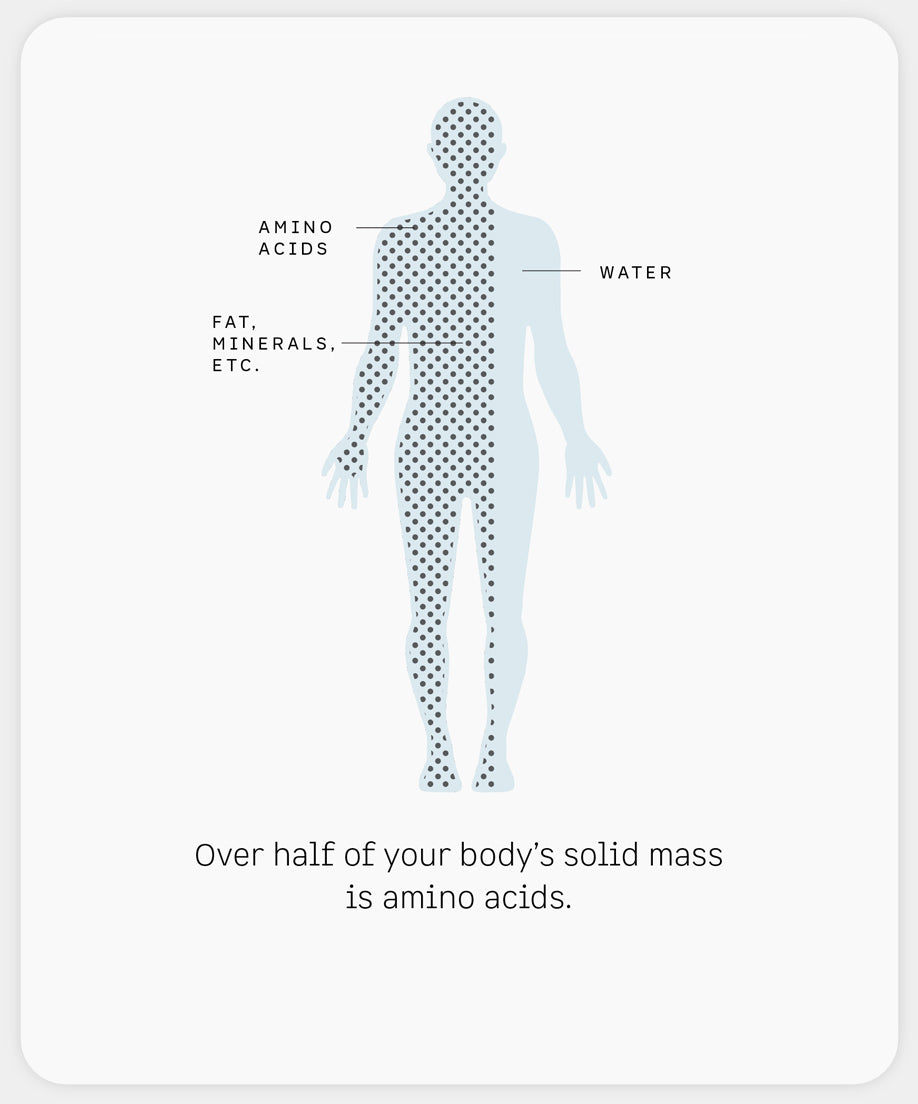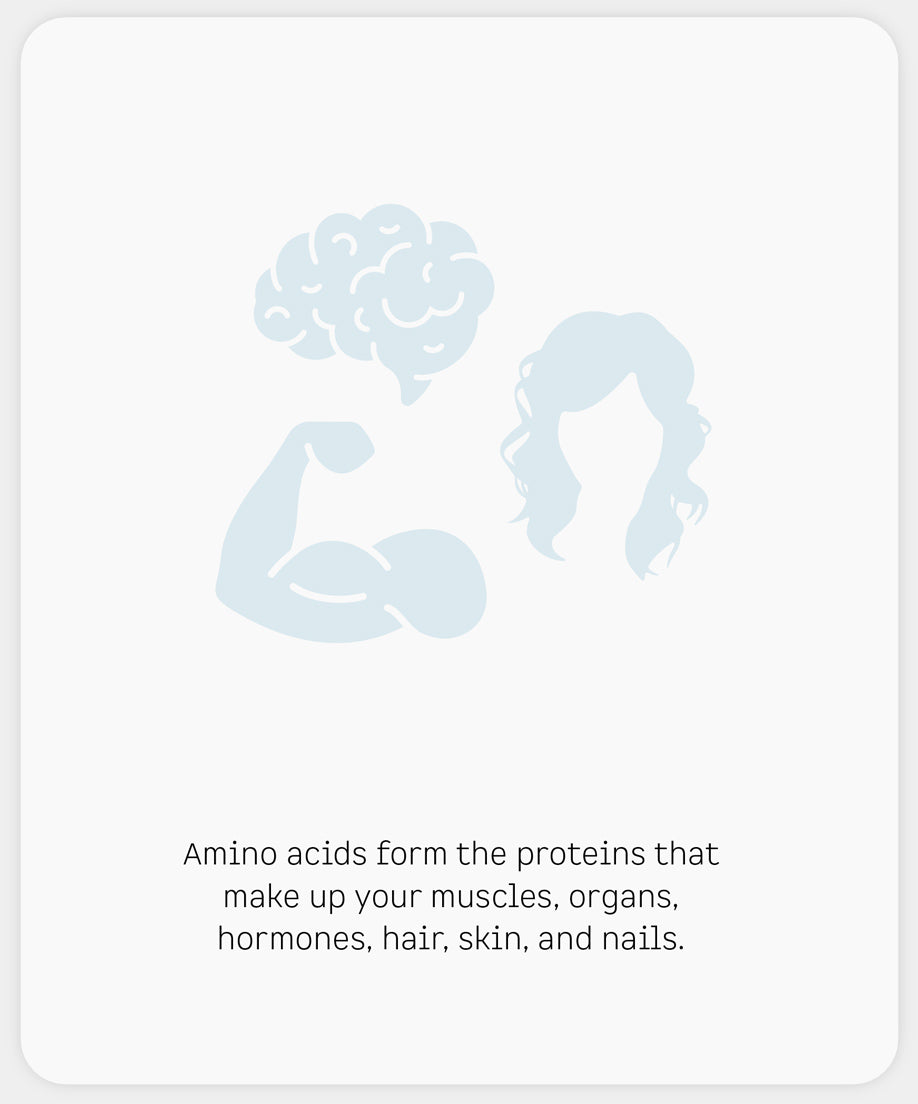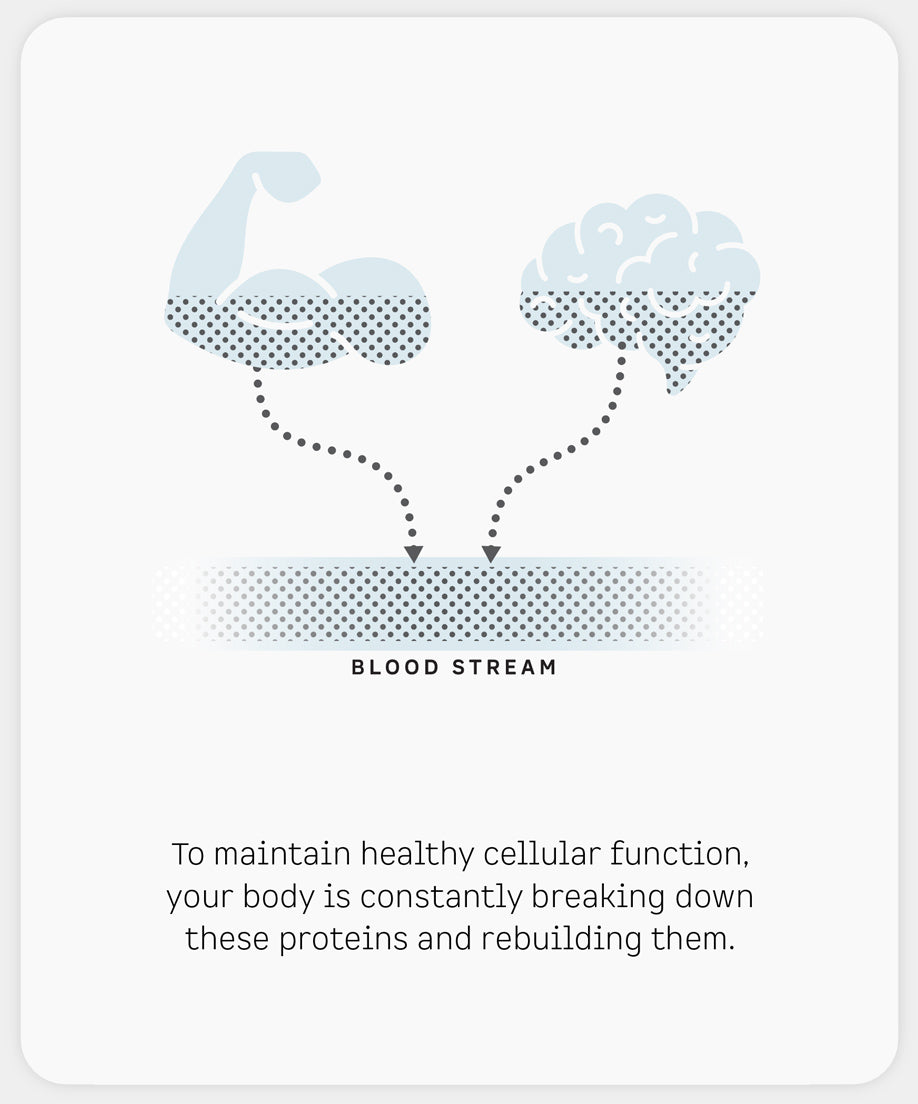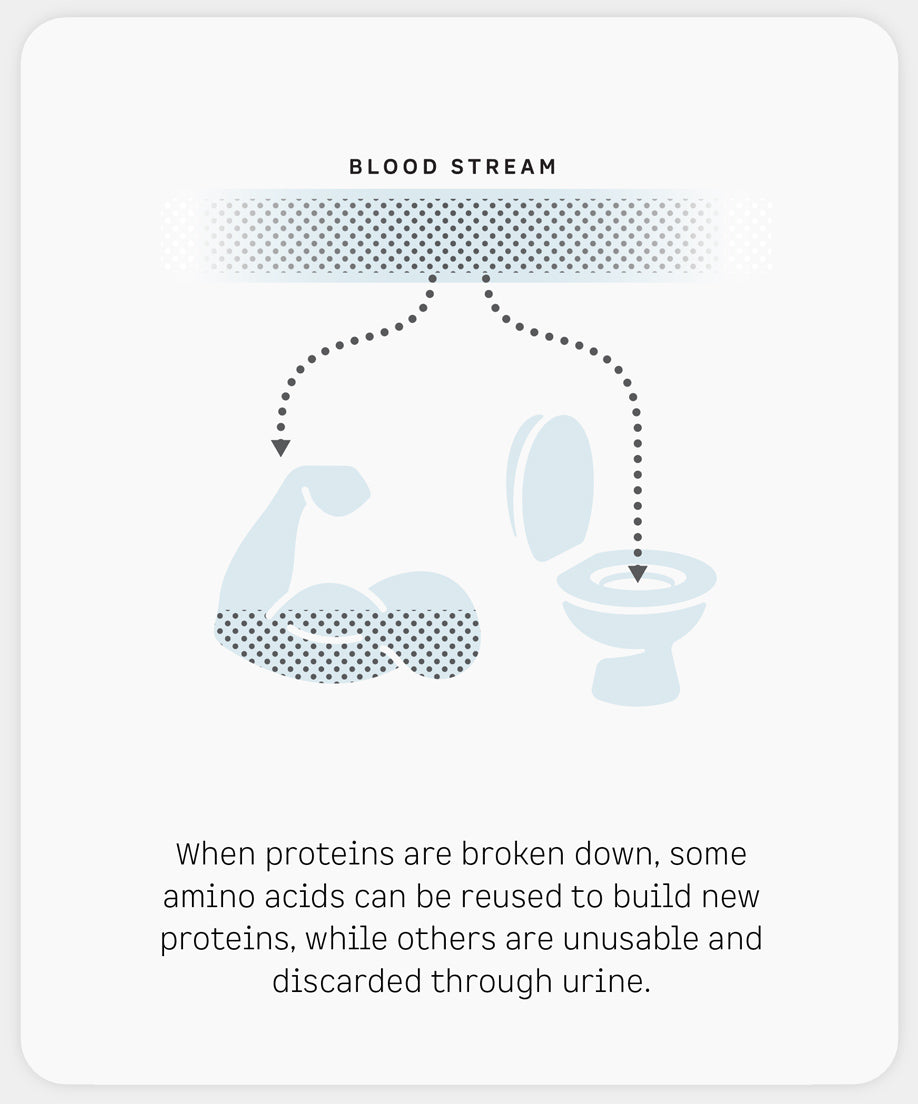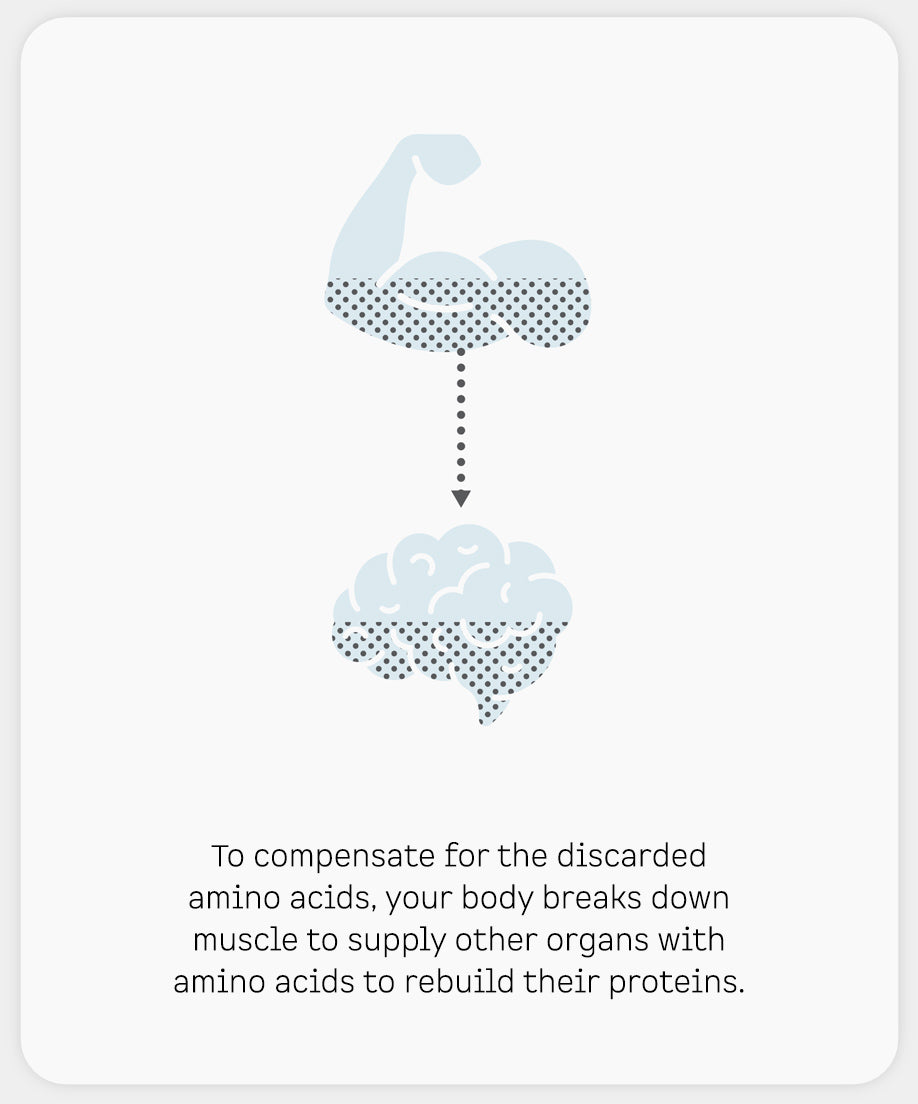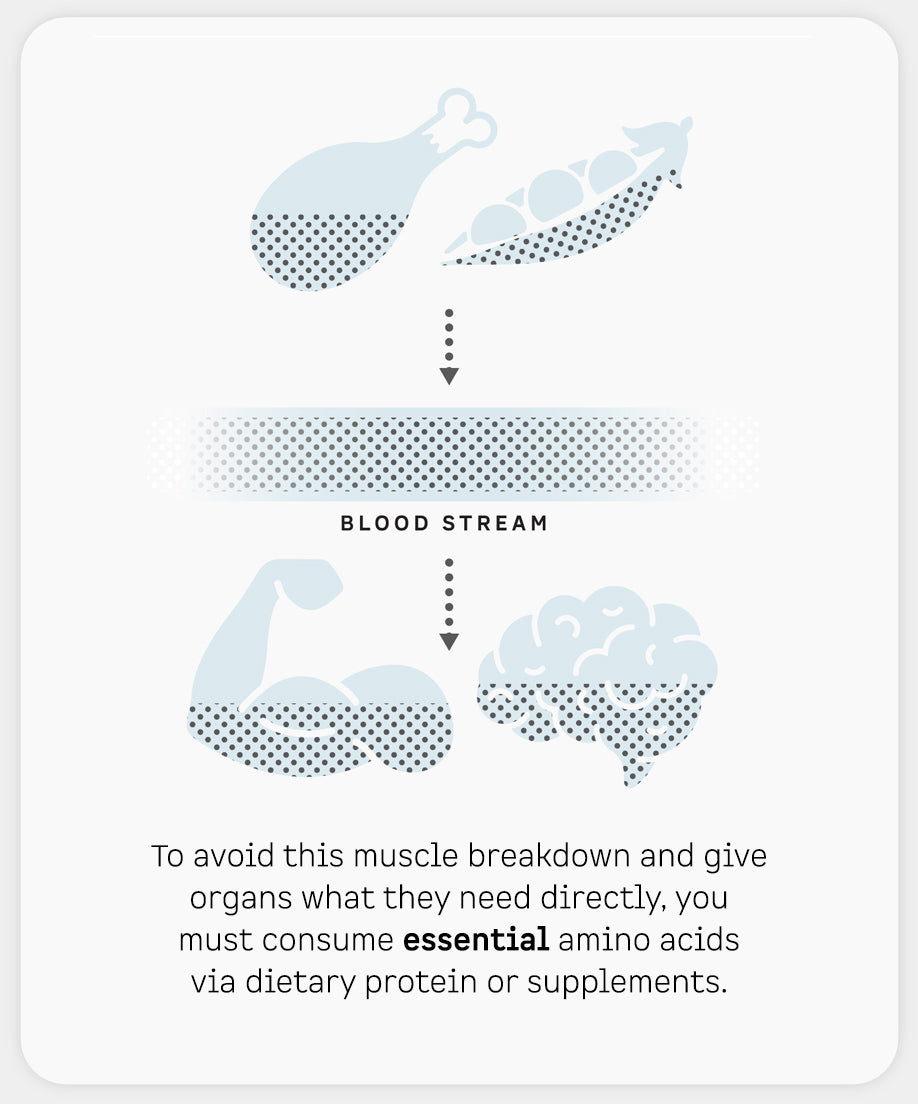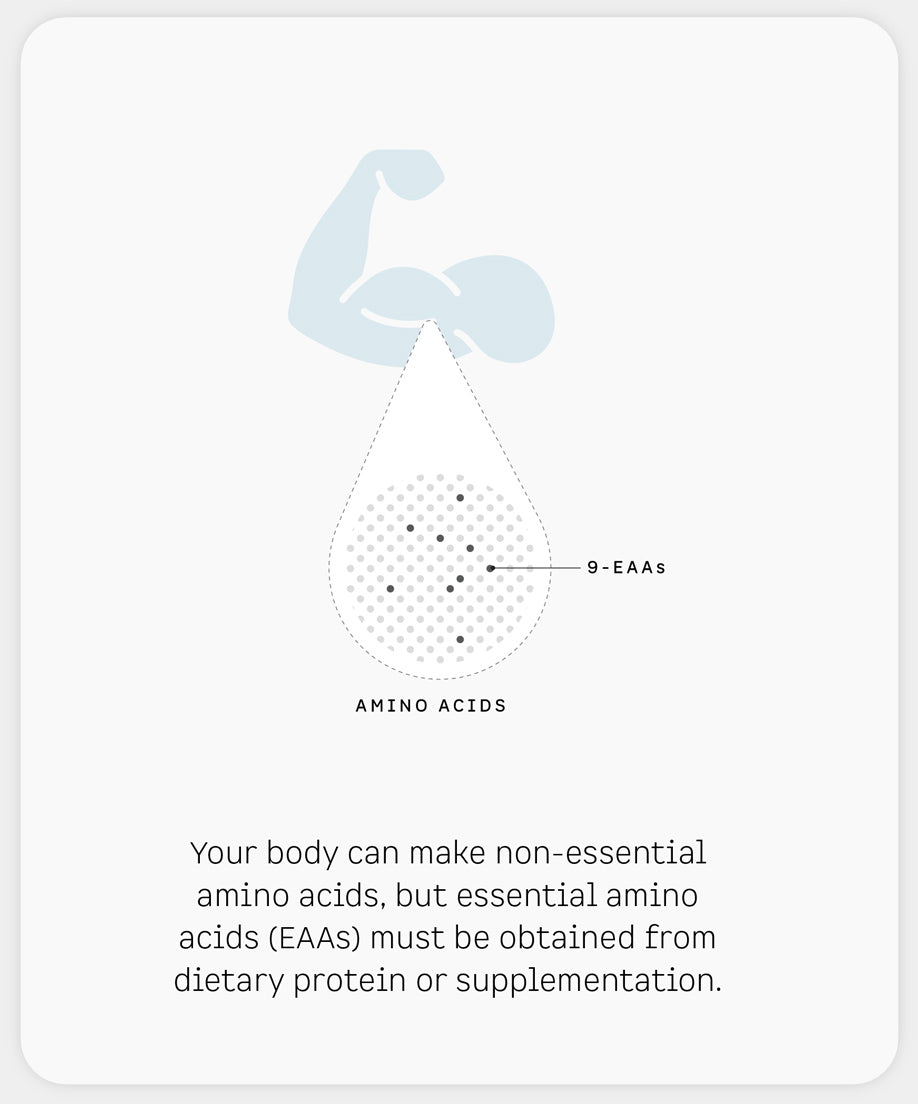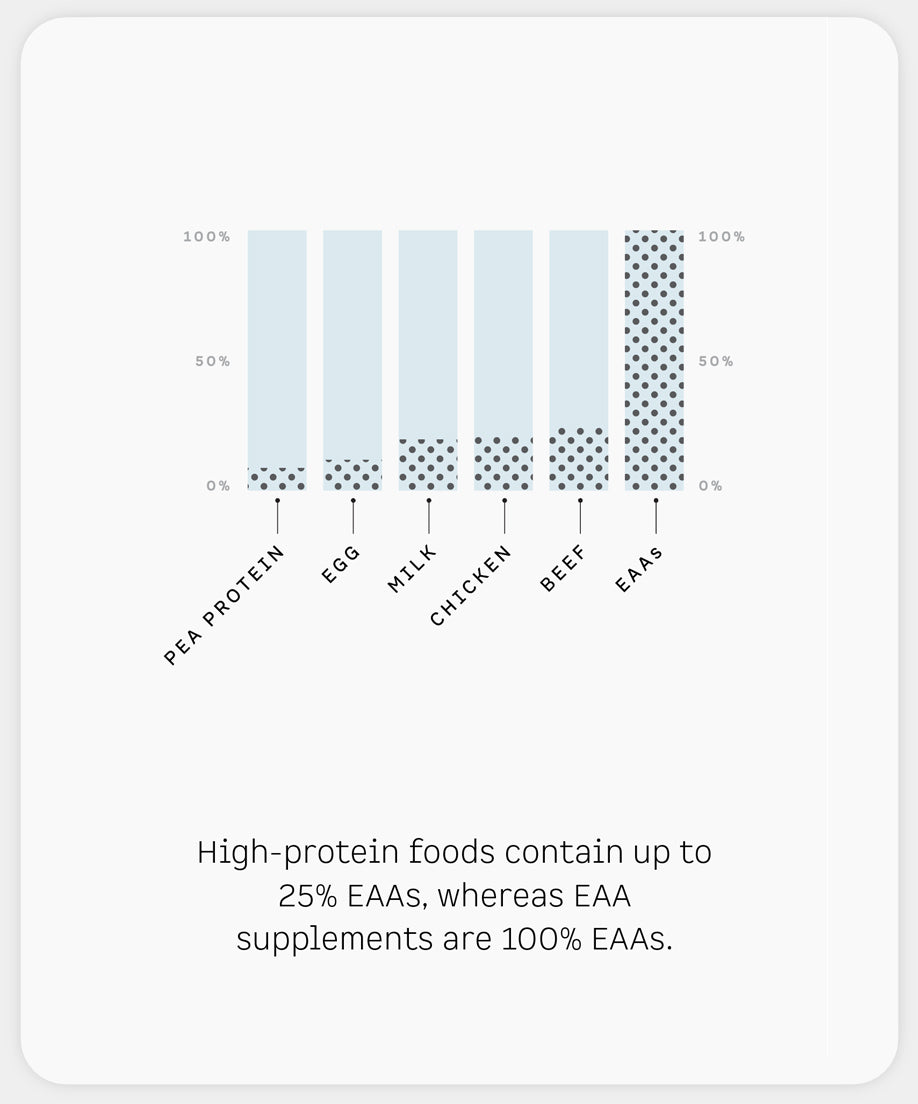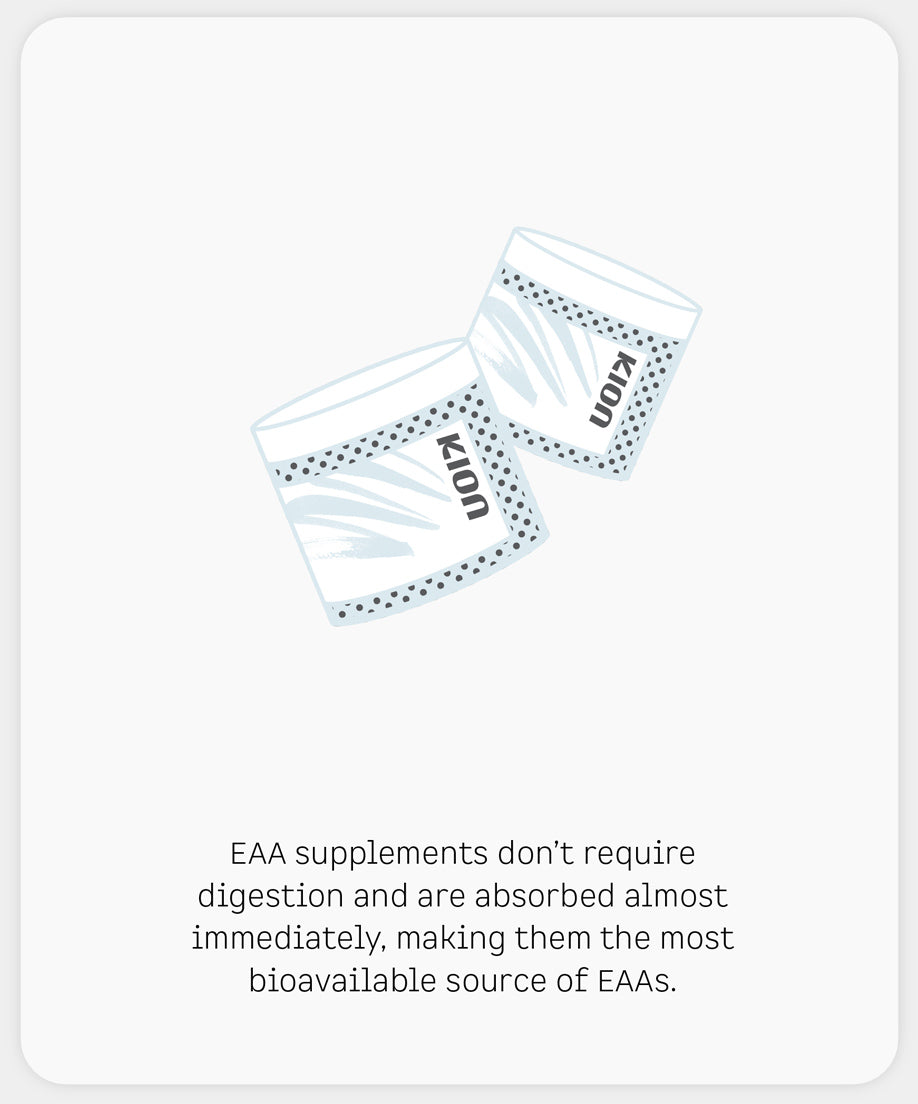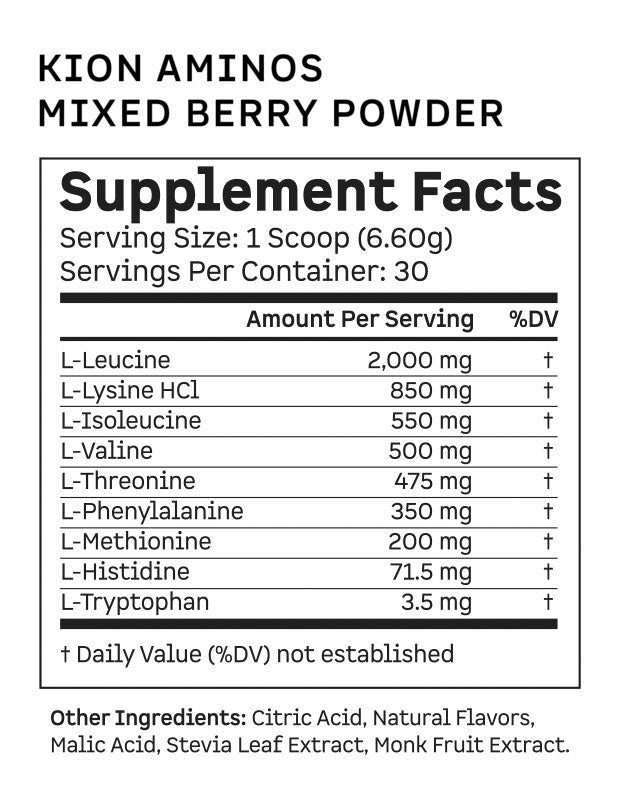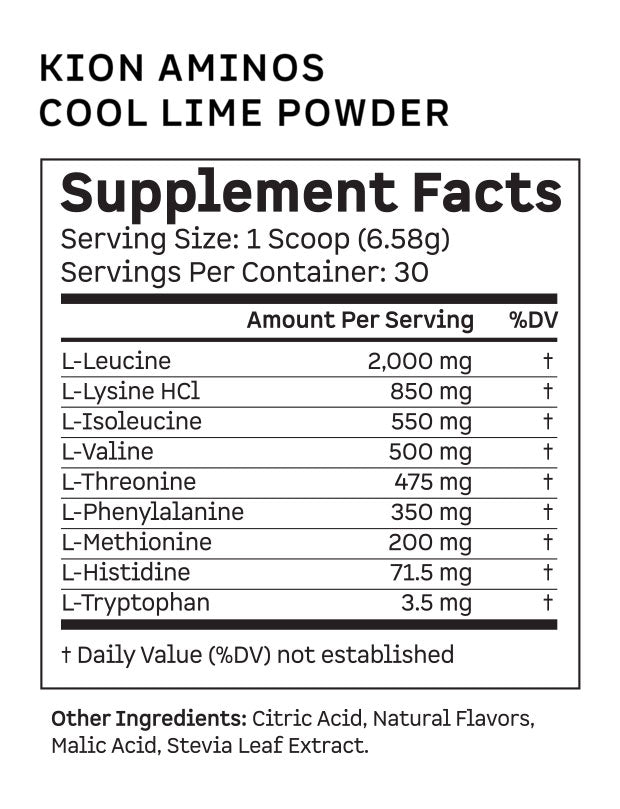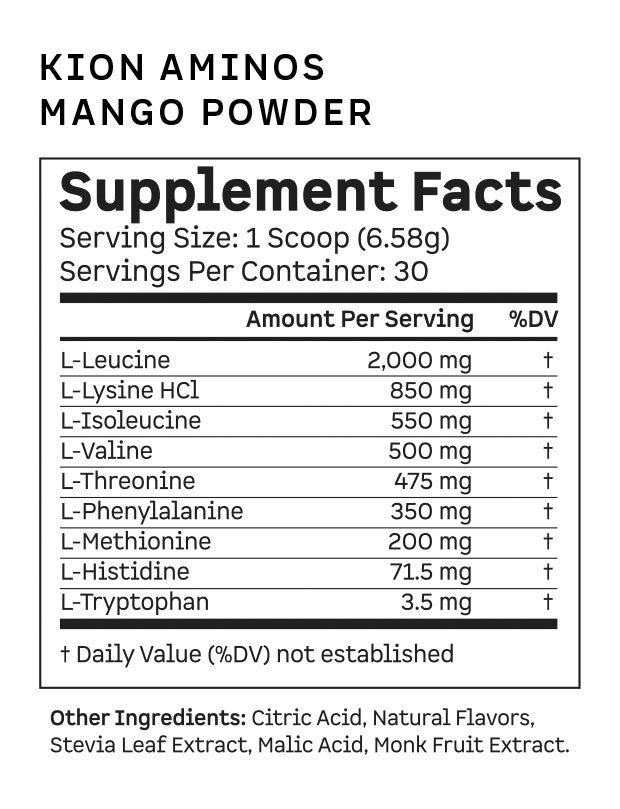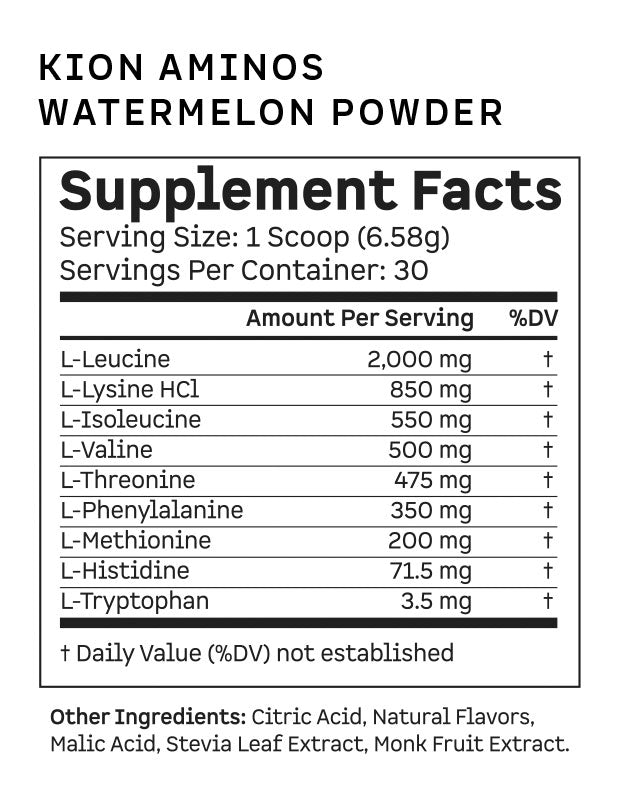Look good
Feel young
Be strong
GET YOUR KION AMINOS
Look good
Feel young
Be strong
GET YOUR KION AMINOS
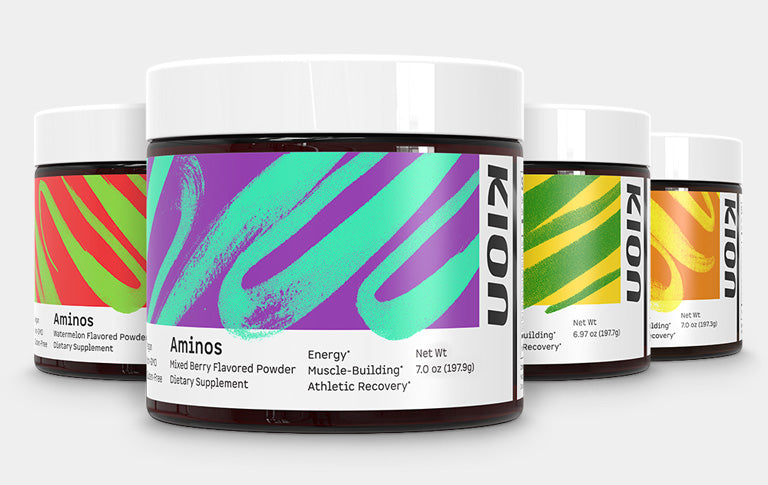
Sculpt a
toned body
Satisfies cravings and builds lean muscle for a faster metabolism.
Age
powerfully
Builds healthy, functional muscles and provides natural, sustained energy.
Activate your athleticism
Naturally boosts energy, builds lean muscle, and enhances athletic recovery.

Kion Aminos is
fundamental
for your fitness
1,700+ verified,
5-star reviews

“Absolutely notice a difference in not only how I feel after I drink my Kion Aminos, but my body has NEVER looked better.”
Kelsey R.

“I’m 72 years young and experienced a definite increase in energy!”
Linda A.

“I'm hooked. I've been taking Kion Aminos daily for a couple of weeks now and have noticed a strength increase, especially when I take these before a workout.”
Matt E.
Sculpt a toned body
Satisfies cravings and builds lean muscle for a faster metabolism.
Age powerfully
Builds healthy, functional muscles and provides natural, sustained energy.
Activate your athleticism
Naturally boosts energy, builds lean muscle, and enhances athletic recovery.

1,700+ verified,
5-star reviews
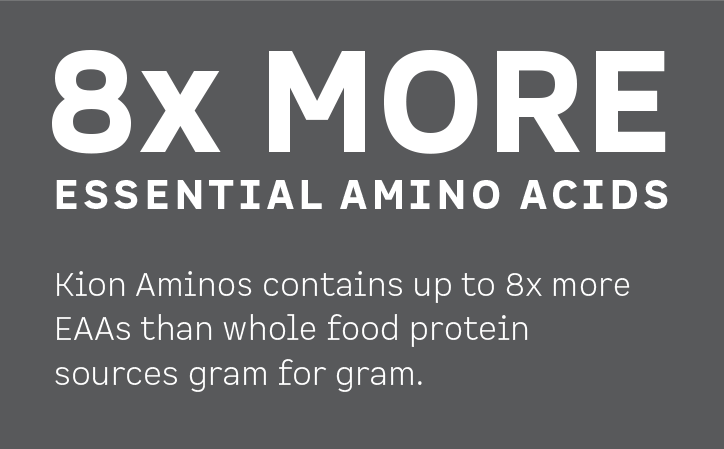
8x
MORE
ESSENTIAL AMINO ACIDS
Kion Aminos contains up to 8x more EAAs than whole food protein sources gram for gram.
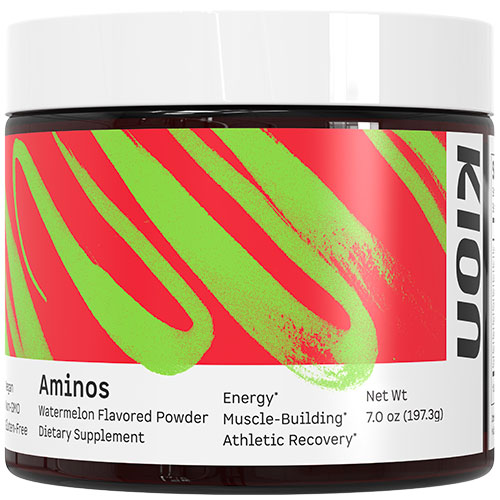
Aminos Powder

Kion Aminos contains all 9 EAAs, is easy for your body to digest and absorb, contains up to 8x more essential amino acids than whole food protein, and tastes great with fruity, natural flavors.
GET YOUR KION AMINOSEnergy, muscle, and recovery to help you look good, feel young, and be strong
GET YOUR KION AMINOSEnergy
Stimulates cellular energy production, counteracts central fatigue, and prevents muscle fatigue during endurance training.
Muscle
Contains the active component of protein that stimulates muscle growth. Kion Aminos is 40% leucine, which is crucial for optimizing muscle protein synthesis.
Recovery
Kion Aminos reduce the muscle damage from exercise that makes you sore while simultaneously promoting muscle protein synthesis.


“It’s a game-changer for me, works right away, and gives me the energy I need to get through my workout.”
Sarah S.

“One of the few supplements providing pure essential amino acids in the right ratios. A must-have to enhance muscle protein synthesis.”
Robert C.

“Delicious tasting and I feel how they help my recovery after a workout. I am not as sore the next day, and I feel revived.”
Heather M.
Why KionAminos?
-
Contains All 9 EAAs
Kion Aminos has all of the EAAs your body needs to naturally boost energy, build lean muscle, and enhance athletic recovery.
-
Honest Label
With Kion Aminos, you know exactly how much of each individual essential amino acid you’re getting, down to the milligram.
-
Scientifically Validated
The Kion Aminos formula is based on over 20 years of essential amino acid research and contains the ideal ratios of all 9 EAAs.
-
Convenient + Tastes Great
Kion Aminos is available in Mixed Berry, Watermelon, Cool Lime, and Mango natural flavors as well as Capsules and Travel Packets.

-
Energy
Stimulates cellular energy production, counteracts central fatigue, and prevents muscle fatigue during endurance training.
-
Muscle
Contains the active component of protein that stimulates muscle growth. Aminos are 40% leucine because this amino acid is critical for optimizing muscle protein synthesis and growth hormone production.
-
Recovery
Kion Aminos reduce the muscle damage that makes you sore while simultaneously promoting muscle protein synthesis.

Why Kion Aminos?
-
Contains All 9 EAAs
Kion Aminos has all of the EAAs your body needs to naturally boost energy, build lean muscle, and enhance athletic recovery.
-
Honest Label
With Kion Aminos, you know exactly how much of each individual essential amino acid you’re getting, down to the milligram.
-
Scientifically Validated
The Kion Aminos formula is based on over 20 years of essential amino acid research and contains the ideal ratios of all 9 EAAs.
-
Convenient + Tastes Great
Kion Aminos is available in Mixed Berry, Watermelon, Cool Lime, and Mango natural flavors as well as Capsules and Travel Packets.

Kion is
energy
for life
Kion helps health and fitness enthusiasts live long, fun, active lives by providing supplements and foods that maximize performance and longevity. By combining the cleanest natural ingredients into complementing formulas, Kion helps you unlock your body’s natural energy.

Research and quality that makes a difference
Research
first
formulations
After conducting a meta-analysis of relevant studies, we choose the most beneficial ingredients and dosages that have proven, consistent results in clinical studies.
Premium
ingredient
sourcing
We select high-quality, non-GMO ingredients and never use fillers or junk additives. We then verify the identity, potency, and purity of each ingredient and use natural flavors and sweeteners.
Product
manufacturing
excellence
All Kion supplements are made in a cGMP facility that is NSF certified. Meticulous attention to detail is applied at every step of the process—from measurements to bottling, packaging, and quality assurance.
Finished
product
testing
Finally, third-party finished product testing is conducted to confirm that specifications are met, including identity, purity, and stringent microbial and contaminant requirements.
Kion is energy for life
Kion helps health and fitness enthusiasts live long, fun, active lives by providing supplements and foods that maximize performance and longevity. By combining the cleanest natural ingredients into complementing formulas, Kion helps you unlock your body’s natural energy.
GET YOUR KION AMINOS
Research and quality that makes a difference
-
Research first formulations
After conducting a meta-analysis of relevant studies, we choose the most beneficial ingredients and dosages that have proven, consistent results in clinical studies.
-
Premium ingredient sourcing
We select high-quality, non-GMO ingredients and never use fillers or junk additives. We then verify the identity, potency, and purity of each ingredient and use natural flavors and sweeteners.
-
Product manufacturing excellence
All Kion supplements are made in a cGMP facility that is NSF certified. Meticulous attention to detail is applied at every step of the process—from measurements to bottling, packaging, and quality assurance.
-
Finished product testing
Finally, third-party finished product testing is conducted to confirm that specifications are met, including identity, purity, and stringent microbial and contaminant requirements.
Shop all products
Shop all
products
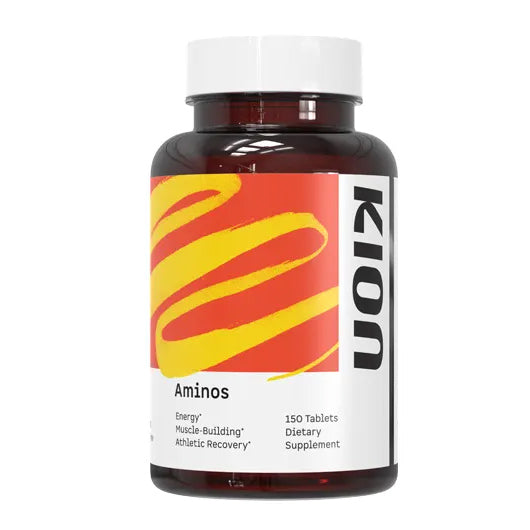


BASED IN BOULDER, COLORADO



